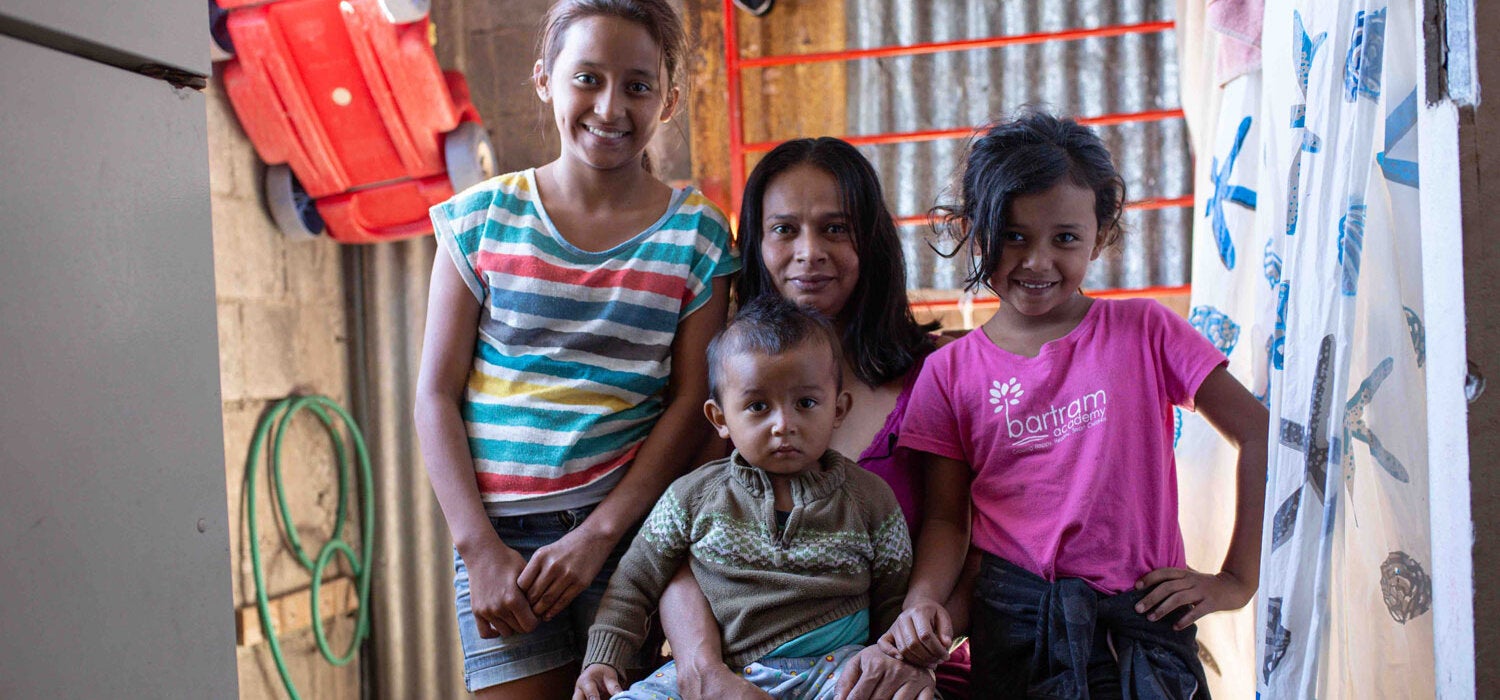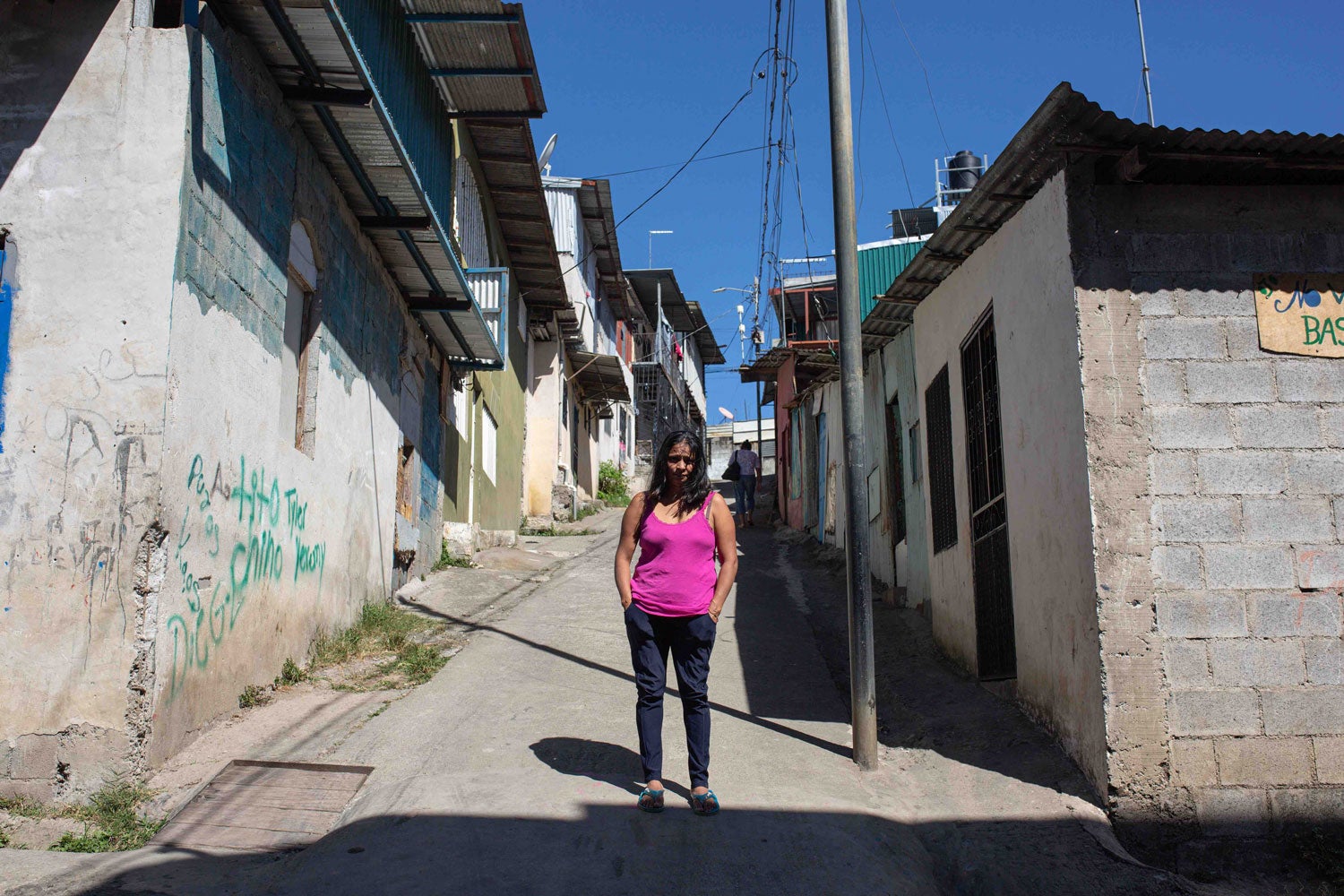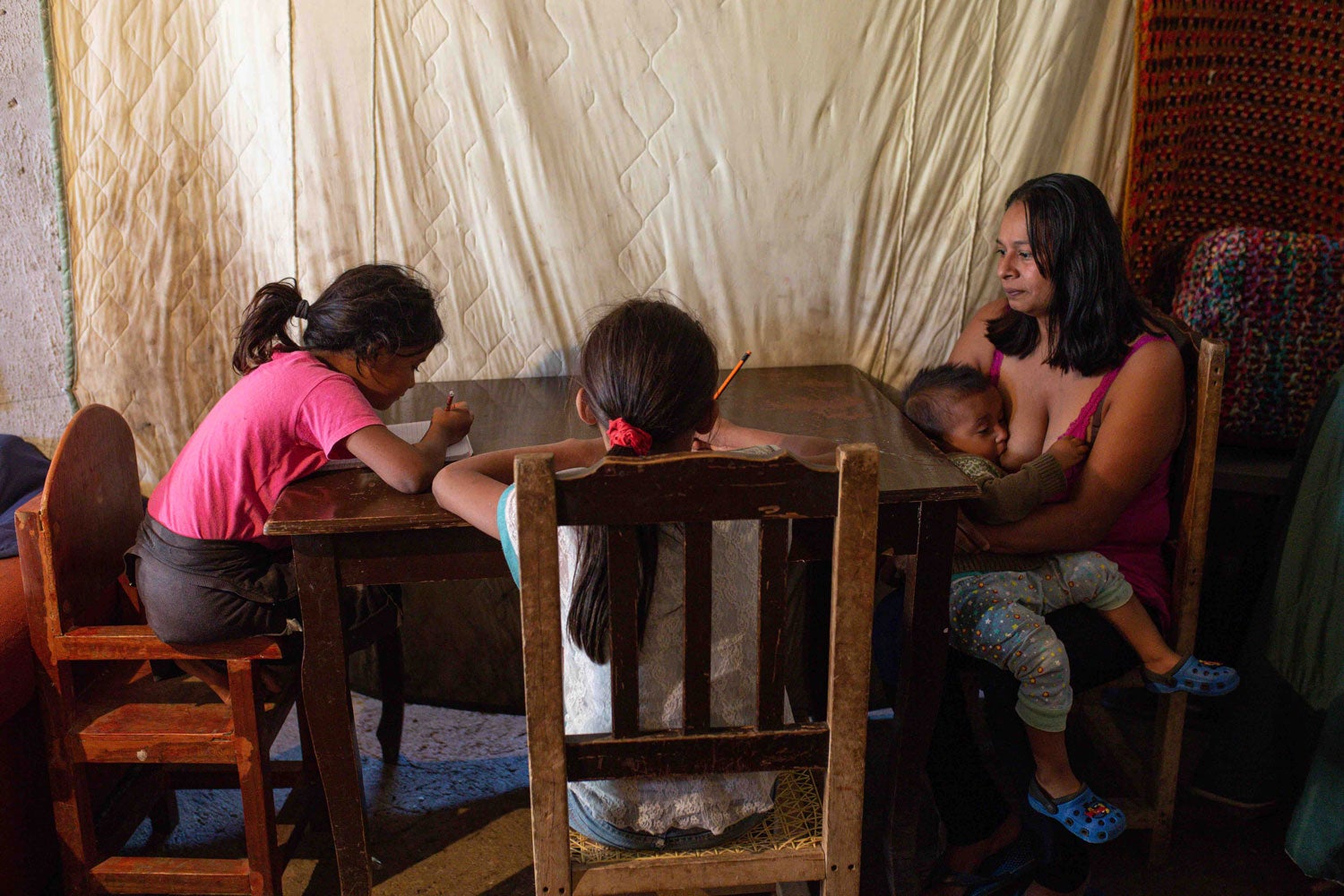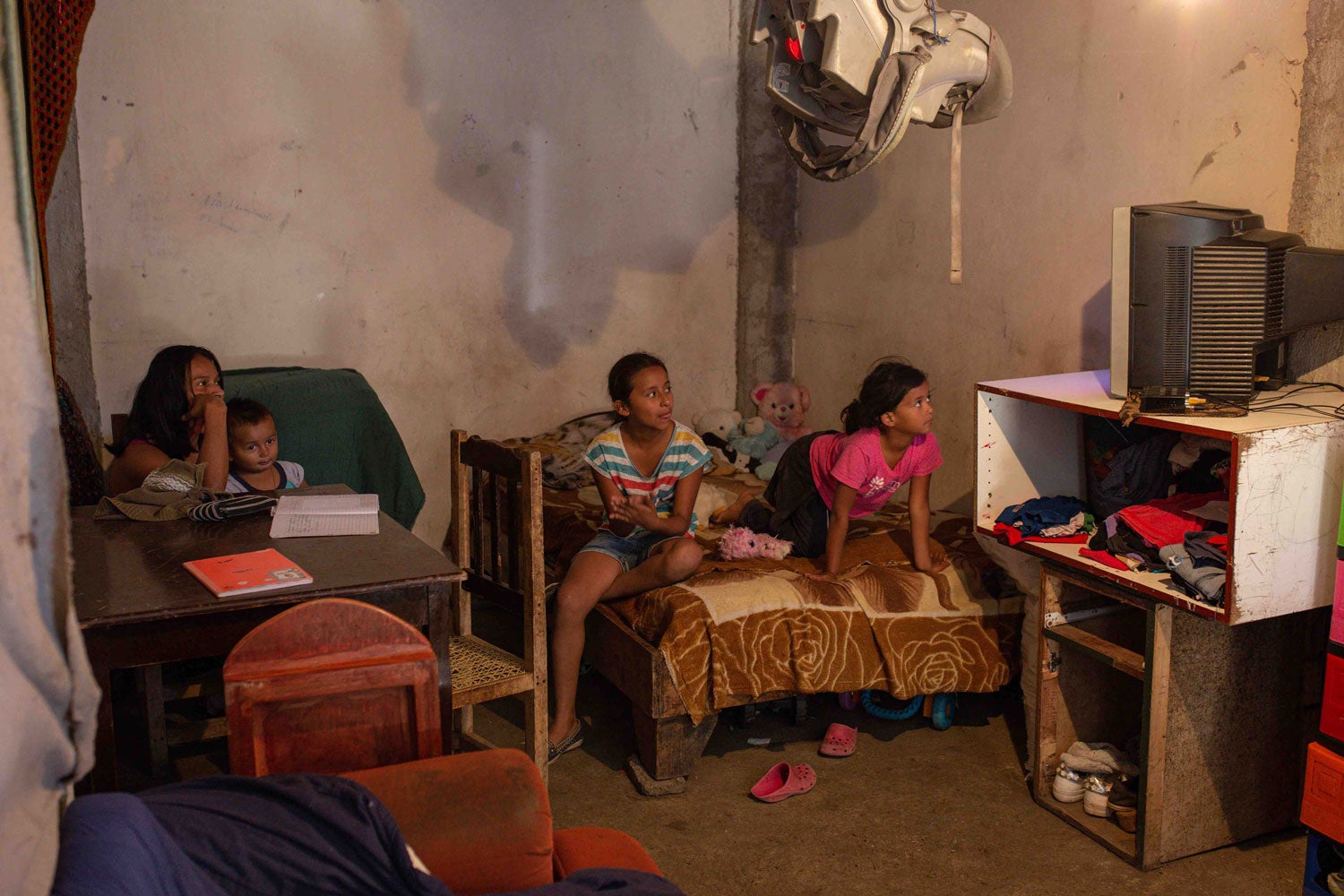The COVID-19 pandemic has intensified challenges for the most vulnerable communities. In countries like Costa Rica, migrants face even greater obstacles. Between the health crisis and economic hardships, thousands of families are suffering the consequences of an uncertain future.
Mayo 2021
SAN JOSÉ, Costa Rica- It’s an ordinary Saturday. Francisca Esperanza Ayala, a 37 year-old woman, plays with three of her four children: Tayra (11), Galilea (6), and Wilton (1). The oldest, Ian (18), is taking care of his grandmother today. Francisca is shy and quiet, the complete opposite of her children. Galilea is curious, Tayra is a natural born leader, and Wilton is the center of attention with all his antics.
The family’s story begins in Nicaragua. After the death of her parents, Francisca migrated to Costa Rica at the tender age of 10 to reunite with her sister Victoria, who had already been residing in the country for several years. Francisca currently lives with her children in La Carpio, part of the La Uruca district to the west of San José.
According to the Ministry of Housing and Human Settlement (MIVAH), some 25,000 people live in the community’s 23 square kilometers, although organizations such as SIFAIS estimate the current population at around 50,000. According to Carlos Sandoval, a researcher from the University of Costa Rica, La Carpio has the largest community of Nicaraguans and binational individuals in the country.
In 2020, the COVID-19 pandemic amplified the challenges faced by migrants on several fronts. Francisca met her husband, Manuel Salvador Munguía, at a party in Costa Rica. They started dating, then moved in together and started a family. Manuel is also Nicaraguan, one of 287,000 counted in the last national census (2011). At the height of the health crisis, he began to feel ill and had to return to his country to receive care, as he lacked health insurance in Costa Rica. He was diagnosed with cancer and has been apart from his wife and children for four months while undergoing treatment.
The pandemic has also led to greater social and economic problems. According to the Continuing Employment Survey administered by the National Statistics and Census Institute, the unemployment rate in Costa Rica reached 22% in the last quarter of 2020. Francisca is among those who lost their jobs. She used to work cleaning a house two days a week but was let go in the middle of the pandemic, since an elderly person lived in the household and the family was afraid she could contract the virus from outsiders.
Francisca has been looking for work for four months now. She lost her job out of fear—fear of infection and fear of the disease. However, in her daily job search she encounters another type of fear that has become an invisible obstacle: the stigma attached to the place where she lives. “I’m afraid, but I have faith in God. If I’m out on the street, I bathe when I come home because I want the children to be safe. But one day I was on the bus and a lady drew back from me, as if I… I just minded my own business and didn’t pay her any mind,” says Francisca, recalling her experience on a bus in La Carpio.
The Costa Rican Ministry of Health has prioritized surveillance of the virus’s behavior in 33 high-risk communities , including Upala, Los Chiles, Sixaola, and San Vito, located in close proximity to the borders with Nicaragua and Panama. Other communities are undergoing surveillance due to high population density, including Los Cuadros, Alajuelita, Guidos, and La Carpio. Overcrowding, limited access to water, and dependence on informal employment increase the possibility of transmission in these communities.
Francisca hasn’t had COVID-19, but that is the first question she is asked in every job interview. “If you’ve had it, I can’t hire you,” she’s been told. Meanwhile, she’s focusing on supporting her children’s studies. Tayra has just passed 4th grade in school thanks to support from her aunt, who serves as an intermediary —through WhatsApp— between the girl and her teacher. Francisca does not have a cell phone or internet access.
Her family’s support has enabled her to get through the months without work or her husband. “My family is very important to me, because with everything that’s going on with my husband, my big sister is always by my side supporting me. If I need something, she buys it for me. She’s always been that way; she’s always been like a mother to me.”
The story of this family divided between Costa Rica and Nicaragua is still being written during this unpredictable pandemic. Francisca has two major concerns: work and health. She hopes her husband’s health improves and that her next job interview goes well. Above all, she wants her girls to be able to go back to school. To go back to normal.




